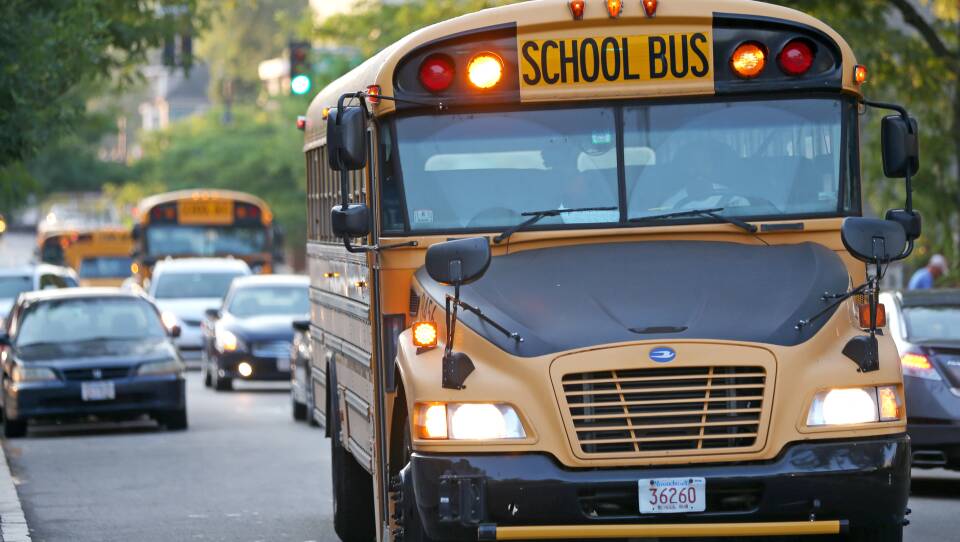Despite Boston Public Schools and city officials being optimistic about bus driver staffing at the start of the new school year, many kids were still on the bus when the bell rang Thursday morning.
Figures from Boston Public Schools show that 61% of school buses arrived on time for the first day, up from 50% last year.
That still falls far short of the 95% on-time threshold the district agreed to when it struck a deal with the state last year.
Boston Mayor Michelle Wu and Superintendent Mary Skipper expressed optimism in recent weeks that recent changes would improve service, including more bus drivers and better data collection. Today, the mayor said they still have work to do,
“The first day of school always requires extra patience and troubleshooting as everyone adjusts to new routines,” Wu told GBH News in a statement Thursday. “We’re pleased to see much stronger on-time arrivals today compared to the first day of school last year. ... But we know there's much more work to do in delivering reliable transportation day after day so students maximize their learning and arrive at school and back at home happy and on-time.”
For the first time since before the pandemic, BPS has a full staff of bus drivers at the beginning of the school year, with more in training. A Boston Public Schools spokesperson said that every scheduled trip was staffed for the first day of school, an improvement over last year when 3% of routes didn’t have a driver.
If history is any guide, the on-time arrivals are likely to improve in the coming days and weeks. After starting off with just half of buses arriving on time last year, by the third day, 73% were on time.
The district has also been fighting an uphill battle in getting its trackers to work. It was a point of frustration that the mayor shared in a Boston Public Radio appearance in July.
“When you look at the numbers and say, ‘We need to hit 95% on-time rate. However, we are going to make you count every bus that malfunctioned with its GPS that day — regardless of what time it actually got there, instead of just removing that data,’” Wu said. “No other district around the country has to include dropped routes because of GPS technology malfunctions as a zero in their system. It is meant, I believe, to create this sense of accountability and pressure.”
A Boston Public Schools spokesperson pointed to improvements with the GPS tracking, too. Last year, nearly a quarter of all buses’ trackers weren’t working on the first day of school. This year, it was 5%. (Those faulty trackers are excluded from the on-time arrival data shared by GBH News.)
“We are constantly monitoring our performance and are making adjustments as needed,” a BPS spokesperson told GBH News in a statement Thursday. “Our goal right now is to get to 95% on time performance, but our work won’t be done until every student can count on the bus for an on-time ride to school every day.”







